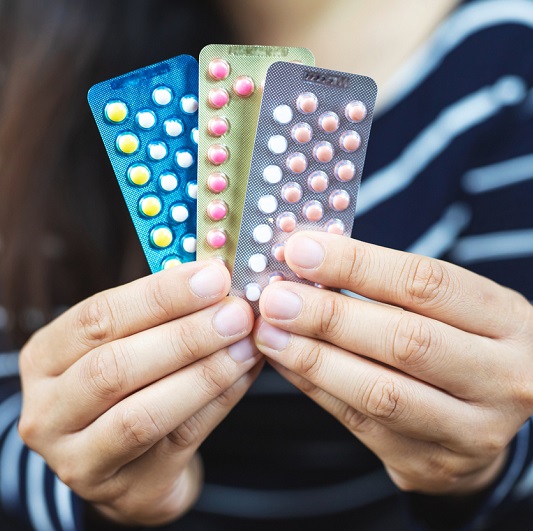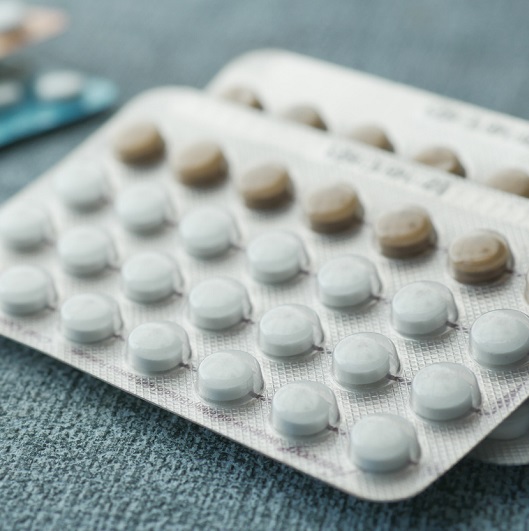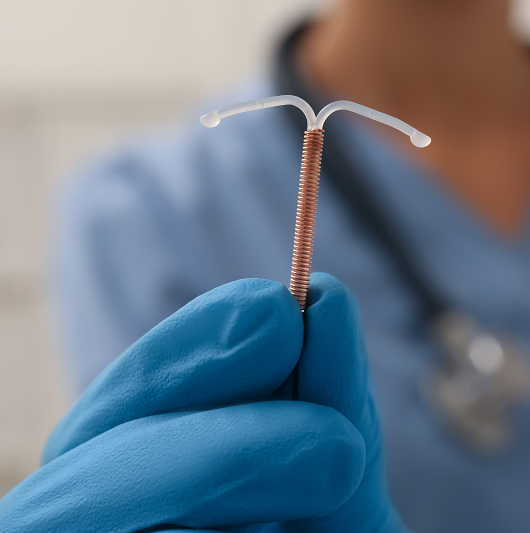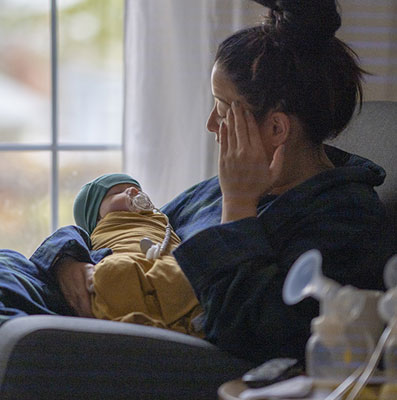Does Birth Control Impact Mental Health, Weight and Fertility? A Closer Look

August 13, 2025
Hormonal birth control, or contraceptives, can help reduce pregnancy by up to 99%. Contraceptives are some of the most common medications in the country. But, like any medication, hormonal birth control can have side effects.
Obstetrician-gynecologist Steven Morgan, M.D., at Jersey Shore Medical Center, says many side effects related to hormonal contraceptives are misunderstood.
If you have questions about how hormonal birth control can affect you, look no further. Dr. Morgan answers your questions about how birth control can impact your weight, fertility and mental health.
How Does Birth Control Work?
Hormonal birth control uses man-made hormones that are similar to the ones your body makes (estrogen and progesterone). These hormones stop you from releasing an egg each month (this is called ovulation). The hormones trick your body into thinking an egg has already been released, so no more eggs are released.
Imagine your body has a monthly mission: to release an egg. Hormonal birth control sends a "mission accomplished" signal, even though no egg has been released. So, your body thinks it's done its job and doesn't release any eggs.
Birth control also:
- Thickens your cervical mucus: This blocks sperm from reaching your uterus.
- Thins the lining of your uterus: A fertilized egg cannot grow when the lining is too thin.
Types of Birth Control Available
Hormonal birth control is available in many forms. You and your doctor can choose which option is best for you. Dr. Morgan says each type of birth control contains different levels of hormones.
"All hormonal birth control contains progesterone and/or estrogen. However, each type uses different amounts of hormones. Since hormones can cause side effects, you may find that different types of birth control affect you differently," says Dr. Morgan.
Different types of hormonal birth control include:
- Birth control pills are available with different levels of hormones. The most popular birth control pill contains a combination of estrogen and progesterone. The "minipill" only has progesterone. However, birth control pills are only effective if you’re consistent – you need to remember to take them every day.
- Depo-Provera is an injection that contains estrogen and progesterone. You will need an injection every three months.
- Vaginal Rings have estrogen and progesterone. The ring is inserted in the vagina every three weeks.
- Birth control patches contain estrogen and progesterone, similar to birth control pills. You can wear the adhesive patches on your shoulder, abdomen, upper back or buttocks for one week. You don't need to wear a patch during the fourth week when you have your period.
Other Benefits of Birth Control
Most women use birth control to prevent pregnancy, but Dr. Morgan says there are other uses. "Doctors frequently prescribe hormonal contraception in reproductive medicine for ovarian cyst prevention, pre-operative management and hormone replacement. Physicians also use birth control to treat reproductive disorders, including endometriosis, polycystic ovary syndrome (PCOS), and excessive hair growth," says Dr. Morgan.
In addition, doctors also prescribe birth control to:
- Help regulate irregular periods
- Control symptoms associated with premenstrual dysphoric disorder (PMDD)
- Reduce moderate to severe acne
Can Birth Control Affect Your Fertility?
According to Dr. Morgan, hormonal birth control will not cause infertility. Doctors generally diagnose infertility after you are unable to become pregnant after one year of trying. He also dismisses claims that staying on birth control for too long can cause infertility.
"Hormonal birth control does not affect your ability to become pregnant. In fact, in many cases, your ability to conceive returns to normal just a few days to months after stopping birth control," Dr. Morgan says.
Delays in Fertility
Birth control does not affect your long-term fertility, but it can delay your ability to get pregnant. Dr. Morgan says that varying forms of hormonal birth control have different effects. A 2020 study revealed that women who took an oral birth control pill began to ovulate within three cycles. Women who took Depo-Provero injections did not ovulate regularly for five to eight months.
Hidden Health Issues
In some cases, birth control may mask medical conditions that can lead to infertility. "If you're on birth control, you may not experience symptoms of conditions of the reproductive system. These conditions, like endometriosis and PCOS could cause infertility," says Dr. Morgan.
Dr. Morgan suggests that women interested in becoming pregnant see their physician. Physicians will do a complete physical and can recommend further testing if necessary. They can also help you understand your body and menstrual cycle.
Will Birth Control Make Me Gain Weight?
Contrary to popular belief, birth control does not cause significant weight gain. But Dr. Morgan says you may temporarily gain weight in the first few months. "Hormonal birth control can cause water retention or bloating. However, the weight gain is limited and goes away within a few months," he says.
The Depo-Provera injection is the only hormonal birth control that may cause weight gain. Studies have shown women who take Depo-Provera may gain over ten pounds within the first two years of starting the medication.
Can Birth Control Cause Depression?
Dr. Morgan says birth control may increase your risk of depression and other mood disorders. “Researchers believe depression could be related to the amount of progesterone in the contraceptive," he says.
However, Dr. Morgan says that not all women experience depression as a side effect of birth control. "The hormones in birth control can affect women differently. Some women may find that the hormones improve their overall mental health. Birth control may be helpful for women who have mood swings or depression related to their menstrual cycle," says Dr. Morgan.
Signs You Should Speak to Your Health Care Provider
If you notice changes in your mood after starting birth control, Dr. Morgan says you should speak to your health care provider. "Your doctor can help determine if the birth control pill is the cause of your depression. They can also discuss alternative options if necessary," he says.
Some signs you should speak to your doctor include:
- Change in appetite or weight loss
- Consistent depression or sadness
- Extreme fatigue
- Loss of interest in activities you usually enjoy
- Thoughts of death or suicide
Fortunately, there are plenty of birth control options available. "Most birth control pills all have the same type of estrogen and different forms of progesterone. Some of the formulas have different side effects. I've frequently changed or used combinations based on my patient's medical history or prior side effects," he says.
Next Steps & Resources
- Meet our expert: Steven Morgan, M.D.
- To make an appointment with Dr. Morgan or a doctor near you, call 800-822-8905 or visit our website.
- Learn more about women’s health at Hackensack Meridian Health.
The material provided through HealthU is intended to be used as general information only and should not replace the advice of your physician. Always consult your physician for individual care.







